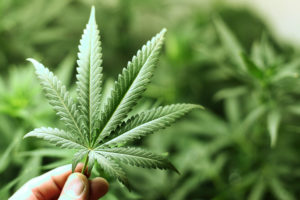
Section 119 Agreements: Indigenous Nations Negotiate Exemptions from BC’s Cannabis Legislation
By Tanner Doerges
Many Indigenous nations across British Columbia are pursuing economic development through cannabis businesses both on- and off-reserve. Some nations have asserted their inherent right to regulate and participate in the cannabis market pursuant to their own jurisdiction, while others have opted to obtain the licences that the federal and provincial governments assert are required.
This jurisdictional question remains unresolved, but somewhat of a middle-ground option is found in section 119 of the Province of British Columbia’s Cannabis Control and Licensing Act, SBC 2018, c 29 (CCLA), which authorizes the Minister of Public Safety and Solicitor General and the Minister of Finance, with the approval of Cabinet, to enter into agreements with Indigenous nations with respect to cannabis.
Two such agreements are now in existence and provide some insight into the terms that the Province is willing to negotiate. Williams Lake First Nation (WLFN) was the first to reach an agreement with the Province in September 2020, followed by Cowichan Tribes in December 2020.
The general approach to these agreements is that the Indigenous nation agrees to comply with the provincial and federal cannabis legislation and, in return, is granted certain exemptions from the provincial legislation. Some of the exemptions found in the agreements with WLFN and Cowichan Tribes are:
- WLFN is exempt from the “tied-house” rules of the CCLA, which generally restrict persons from operating in both the production and retail sectors of the cannabis market.
- Cowichan Tribes is exempt from some of the “tied-house” rules of the CCLA, such that they can have an interest in both retail and production businesses, but their retail business may only sell product from their production business at their store located on-reserve.
- WLFN is permitted to sell their own cannabis products from a retail store at their production facility, known as “farm-gate sales”, without being required to sell the product of other producers as well. The Province is in the process of developing a farm-gate sales program that will generally enable cannabis growers to sell their own products from stores at their production sites.
- WLFN is permitted to sell non-consumable, regionally produced Indigenous arts and crafts at the retail store at their production facility, as an exemption from the limitation in the CCLA that cannabis retail stores may only sell cannabis, cannabis accessories, and shopping bags.
A significant difference between the two agreements is that WLFN’s applies to entities that are wholly owned by WLFN, while Cowichan Tribes’ applies to a business structure in which Cowichan Tribes holds only a 51% interest. The fact that Cowichan Tribes’ business is not wholly Indigenous owned is a likely reason why their agreement contains more narrow exemptions and is only for a limited term of one year.
As the Province continues to develop its policy framework behind these agreements, it will be interesting to see what any renewal of the Cowichan Tribes agreement will look like and what additional exemptions may be negotiated by other Indigenous nations. For Indigenous nations interested in entering the cannabis industry in British Columbia, or in gaining some certainty about the applicability of provincial laws to an existing cannabis business, in our view these agreements are worth considering.
Our lawyers have experience helping Indigenous communities with their economic development, including preparing or reviewing agreements and direct experience with cannabis distribution. Contact us today if your community is considering a cannabis business.
